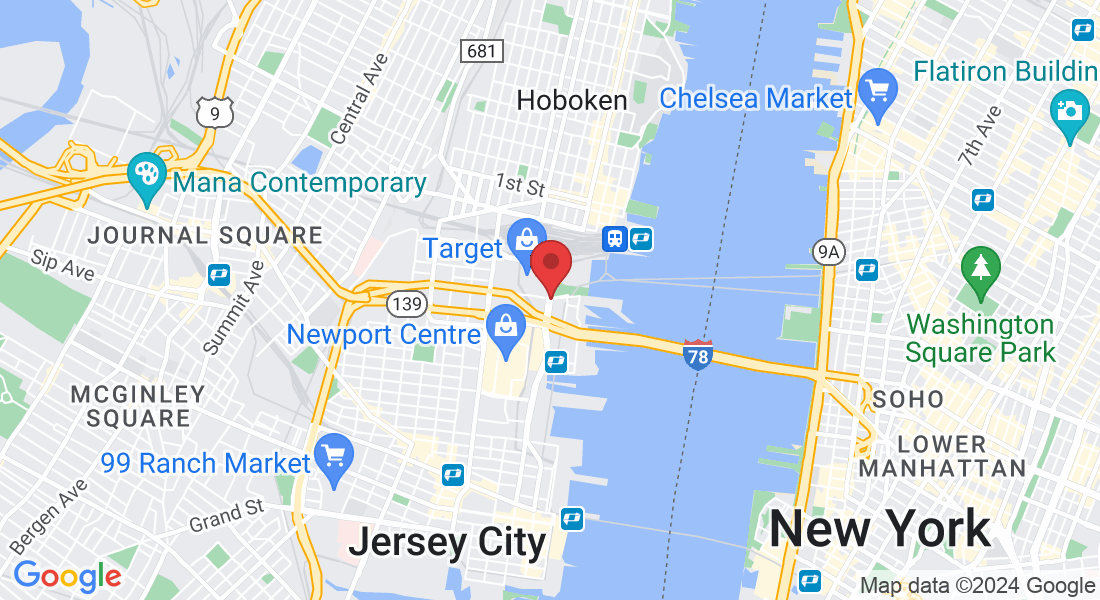New Jersey Rehab Experts
Specializing in comprehensive orthopedic care, New Jersey Rehab Experts offers a wide range of services including Physical Therapy, Sports Physical Therapy, Dry Needling, Chiropractic Care, Neuropathy Treatment, Pain Management, and Manual Therapy. Our state-of-the-art facility is staffed by board-certified therapists dedicated to delivering top-tier care, ensuring you achieve optimal recovery and wellness.
Clinic Located in Jersey City (Newport), Secaucus and Clifton
Genuine Feedback from
Our Patients
Our Affiliations

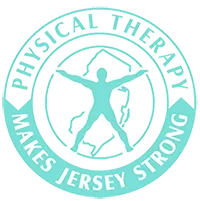




Explore Our Diverse Range of Disciplines
Discover a world of exceptional care customized for all ages! Our dedicated professionals deliver top-notch medical attention, expert rehabilitative therapy, and warm companion care for adults, seniors, and young patients. Experience personalized healthcare with a heart!
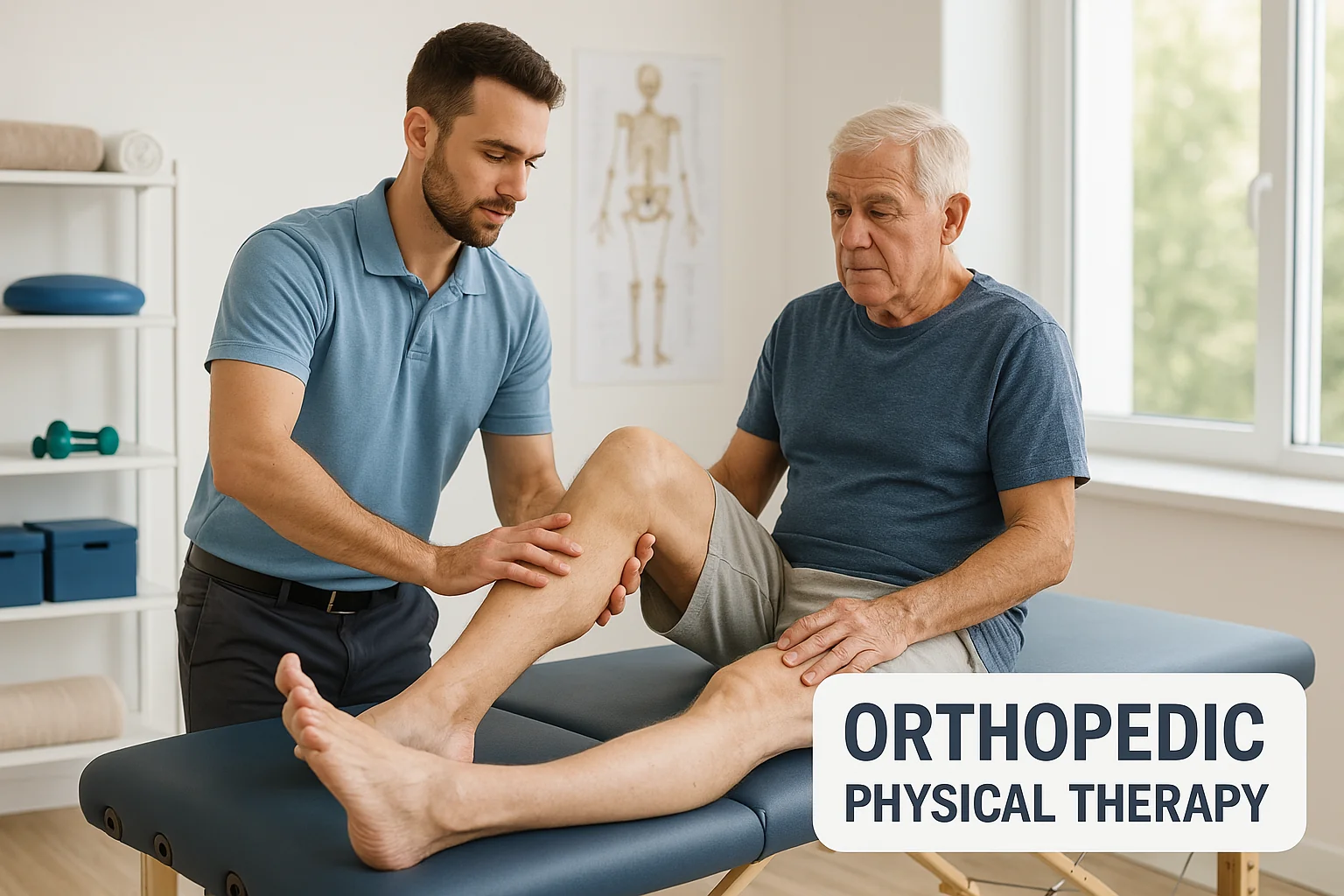
Orthopedic Physical Therapy
Specialized care for musculoskeletal injuries, surgeries, and chronic conditions affecting bones, joints, muscles, ligaments, and tendons.
- Sports injuries
- Arthritis management
- Post-surgical rehab

Geriatric Physical Therapy
Specialized care for older adults, addressing age-related changes affecting balance, strength, mobility, and independence.
- Fall prevention
- Balance training
- Mobility enhancement
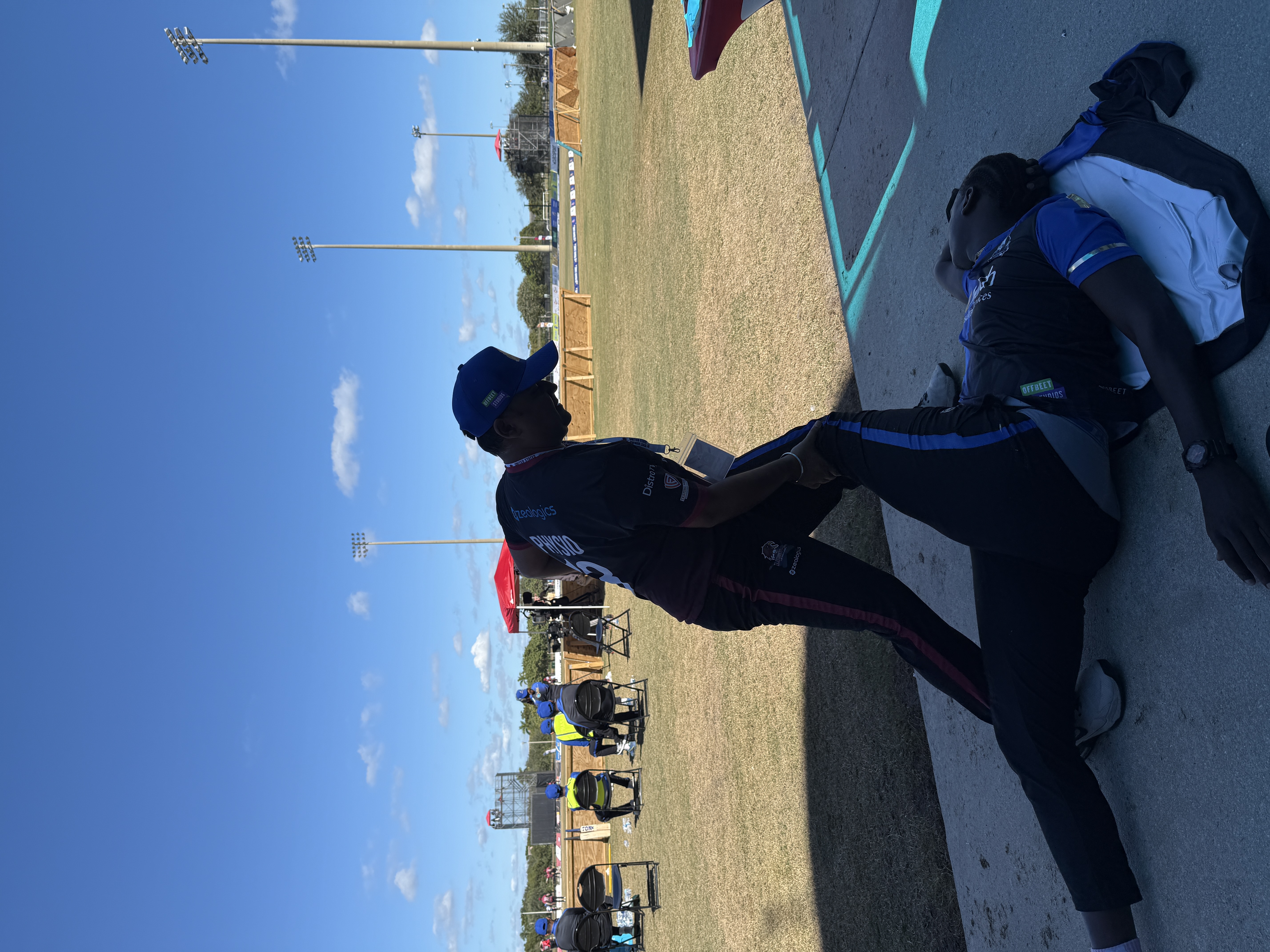
Sports Physical Therapy
Specialized rehab for athletes of all levels, from weekend warriors to professionals, focusing on injury recovery and performance enhancement.
- ACL rehab
- Return-to-play testing
- Performance optimization

Vestibular Rehabilitation
Specialized therapy for dizziness, vertigo, and balance disorders stemming from inner ear and balance system dysfunction.
- BPPV treatment
- Balance retraining
- Dizziness management

Men's Health Physical Therapy
Specialized care for pelvic floor dysfunction and related issues, providing discreet, effective treatment for men's specific health needs.
- Pelvic pain relief
- Post-prostatectomy rehab
- Urinary dysfunction

Motor Vehicle & Work Injury Rehab
Specialized care for car accidents and workplace injuries, with expert documentation and coordination with insurance providers.
- Whiplash treatment
- Workers' comp cases
- Personal injury claims

Manual Therapy
Hands-on approach using specialized techniques to relieve pain, improve mobility, and accelerate healing naturally.
- Mulligan Mobilizations
- McKenzie Method
- Myofascial Release
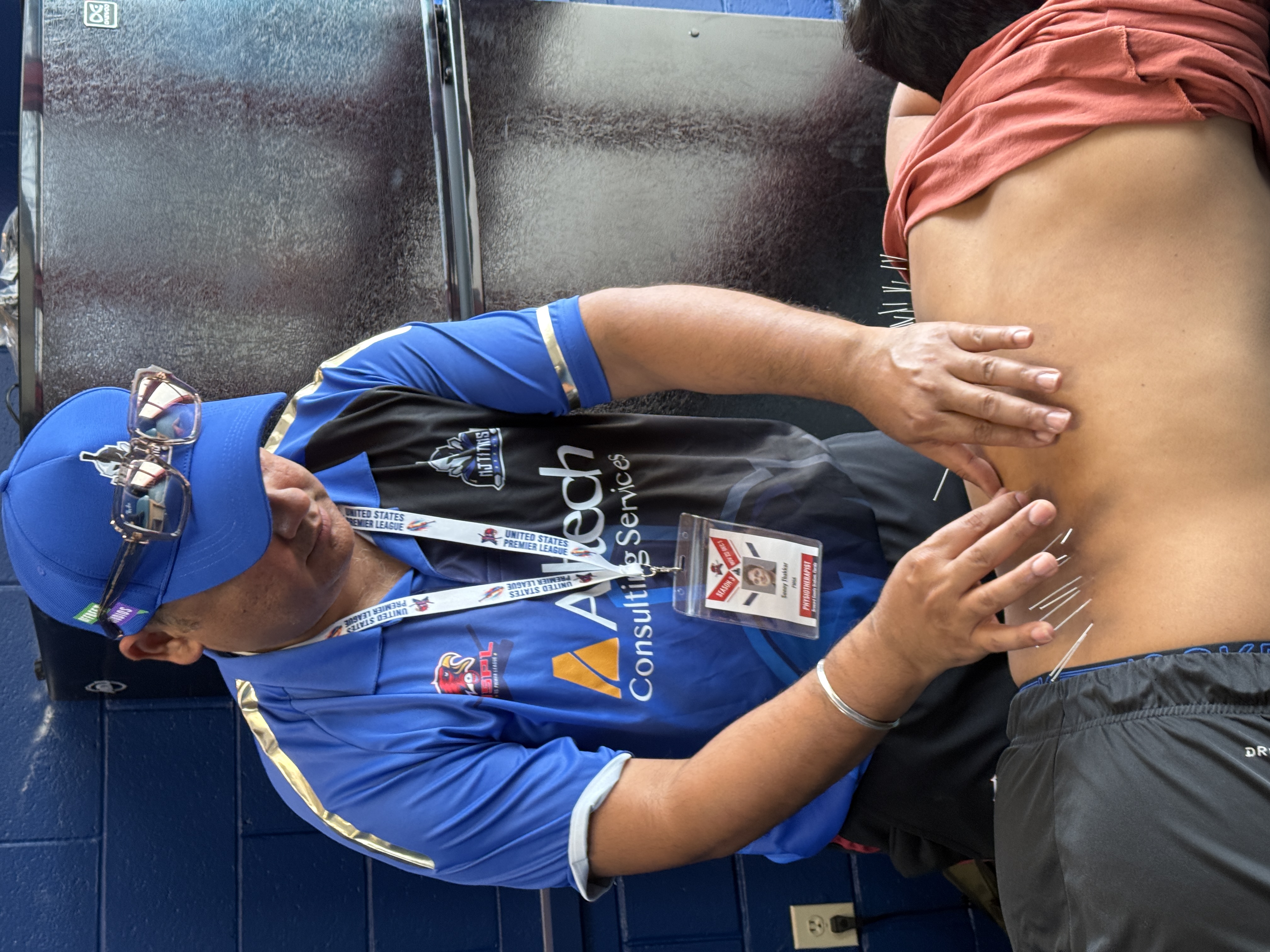
Dry Needling
Modern technique using thin, sterile needles to target trigger points, releasing muscle tension and restoring normal function.
- Back & neck pain
- Headaches & migraines
- Sports injuries
Ready to start your recovery journey?
Our expert therapists are ready to help you live pain-free and regain your mobility.
Our Advantages
Specialized Programs for Every Need
From orthopedic rehab and sports therapy to vestibular, pelvic health, and post-injury recovery, we provide comprehensive, patient-focused solutions.
State-of-the-Art Techniques & Technology
We use cutting-edge treatments like dry needling, spinal manipulation, Mulligan & McKenzie techniques, Fit3D scans, Shockwave Therapy , Cupping and more to accelerate healing.
Personalized One-on-One Care
Every patient receives individualized treatment plans with hands-on attention to ensure faster recovery and long-term results.
Trusted by Athletes & Community Leaders
Official providers for multiple cricket teams and a member of respected healthcare associations—our reputation speaks for itself.
Multiple Convenient Locations Across NJ
With clinics in Jersey City, Secaucus, Clifton , and beyond, we’re always within reach—offering flexible scheduling and bilingual support.
Seamless Support for Injury Claims & Recovery
We coordinate care with attorneys, physicians, and insurers for patients recovering from motor vehicle or work-related injuries, ensuring smooth documentation and stress-free rehab.
Meet Our Team

Sunny Thakkar PT, MS ( Exercise Physiologist)
Physical Therapist

Ashish Sinha, PT, DPT
Physical Therapist

Dr. Rohit Farzala PT, DPT
Physical Therapist
About Us
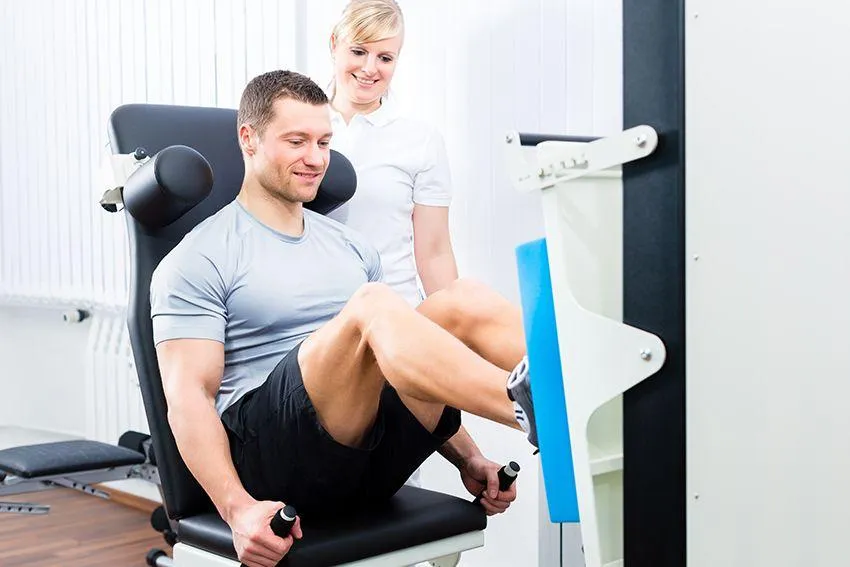

Experience rapid rejuvenation as our specialist team harnesses the power of advanced healing tech to erase pain with ease. We dive deep into your world, assessing every piece of the puzzle—stress at work, life pressures, physical health, nutrition, genes, posture, and even emotional ties—crafting a tailor-made wellness blueprint that's as unique as you are. With our dedicated holistic touch, we don't just treat symptoms; we empower you to embrace a pain-free, harmonious life.
Ask a Question

Unlocking Your Potential: The Ultimate Guide to Professional Experience as a Physical Therapist
Unlocking Your Potential: The Ultimate Guide to Professional Experience as a Physical Therapist
Are you ready to elevate your career as a physical therapist? Unlocking your potential in this rewarding field requires more than just knowledge—it demands a blend of practical experience, continuous learning, and strategic career planning. In "Unlocking Your Potential: The Ultimate Guide to Professional Experience as a Physical Therapist," we will explore the vital steps to enhance your skills and broaden your professional horizons. From effective patient interaction to staying updated with the latest therapies, every experience you gain can significantly impact your practice. Whether you are a recent graduate eager to make a mark or a seasoned therapist looking to refine your journey, this guide will provide you with actionable insights and resources to navigate the challenges and opportunities in physical therapy. Join us on this transformative path and discover how to unlock your full potential today!
Understanding the Role of a Physical Therapist
Physical therapists (PTs) are healthcare professionals who play a crucial role in enhancing the quality of life for individuals suffering from physical impairments, disabilities, and pain. Their primary objective is to develop and implement personalized treatment plans that improve mobility, reduce discomfort, and prevent further injury. PTs work with patients of all ages, from infants with developmental challenges to elderly individuals recovering from joint replacements, making their scope of practice both diverse and impactful.
Beyond treating injuries, physical therapists also emphasize the importance of preventive care. They educate patients on proper body mechanics, ergonomics, and exercise routines tailored to their needs, which can help prevent future injuries. This proactive approach is essential in promoting long-term health and wellness. Additionally, PTs often collaborate with other healthcare providers, such as physicians, occupational therapists, and speech therapists, to ensure a comprehensive approach to patient care.
The role of a physical therapist extends to various settings, including hospitals, outpatient clinics, rehabilitation centers, sports facilities, and even home health care. Each environment presents unique challenges and opportunities, allowing PTs to gain diverse experiences and skills. Understanding the multifaceted nature of their role is the first step for physical therapists in unlocking their professional potential and making a meaningful impact on their patients' lives.
Essential Skills for Success in Physical Therapy
To excel in the field of physical therapy, practitioners must possess a blend of technical expertise, interpersonal skills, and critical thinking abilities. Technical skills are fundamental; these include a deep understanding of human anatomy, physiology, and biomechanics, as well as proficiency in various therapeutic techniques such as manual therapy, exercise prescription, and electrotherapy. Mastery of these technical aspects ensures that PTs can effectively diagnose and treat a wide range of conditions.
Interpersonal skills are equally important, as they enable PTs to build strong, trusting relationships with their patients. Effective communication is key—PTs must be able to explain treatment plans clearly, listen to patient concerns, and provide empathetic support throughout the rehabilitation process. Patience and compassion are essential traits, as the journey to recovery can be challenging and requires consistent encouragement and motivation from the therapist.
Critical thinking and problem-solving skills are indispensable in physical therapy. Each patient presents a unique set of symptoms and circumstances, requiring PTs to adapt their strategies and think creatively to achieve the best outcomes. This involves continuous assessment and adjustment of treatment plans based on patient progress and feedback. By honing these essential skills, physical therapists can enhance their effectiveness and achieve greater success in their practice.
The Importance of Clinical Experience
Clinical experience is a cornerstone of professional growth for physical therapists. It provides an invaluable opportunity to apply theoretical knowledge in real-world settings, gain hands-on experience, and develop practical skills that are crucial for effective patient care. Engaging in diverse clinical rotations exposes PTs to a variety of patient populations, conditions, and treatment approaches, broadening their expertise and adaptability.
During clinical internships, PTs work under the supervision of experienced mentors who provide guidance, feedback, and support. This mentorship is vital for professional development, as it helps new therapists refine their techniques, build confidence, and learn best practices from seasoned practitioners. The insights gained from these mentors can shape a PT's approach to patient care and influence their career trajectory.
Clinical experience also plays a significant role in developing professional judgment and decision-making abilities. In a supervised environment, PTs can practice assessing patients, developing treatment plans, and making adjustments based on patient responses. This real-time learning process is essential for becoming proficient in delivering high-quality care. By accumulating diverse clinical experiences, physical therapists can enhance their competency and readiness to handle the complexities of independent practice.
Continuing Education and Professional Development
The field of physical therapy is dynamic and constantly evolving, with new research, technologies, and treatment methodologies emerging regularly. To stay at the forefront of the profession, physical therapists must commit to lifelong learning and continuous professional development. Engaging in continuing education courses, attending workshops and conferences, and pursuing advanced certifications are all effective ways to enhance one's knowledge and skills.
Continuing education not only keeps PTs updated with the latest evidence-based practices but also allows them to specialize in areas of interest. Specializations such as orthopedics, geriatrics, pediatrics, neurology, and sports physical therapy enable practitioners to focus their expertise and provide more targeted care. Advanced certifications in these areas signal a higher level of proficiency and can open doors to new career opportunities and leadership roles.
Professional development also encompasses soft skills such as leadership, communication, and business acumen. As PTs advance in their careers, they may take on roles that require managing teams, running clinics, or advocating for the profession. Developing these skills through formal training or mentorship programs can significantly enhance a PT's ability to lead effectively and contribute to the growth of the field. By prioritizing continuing education and professional development, physical therapists can ensure they remain competent, competitive, and capable of providing the highest standard of care.
Networking in the Physical Therapy Community
Networking is a powerful tool for professional growth and development in physical therapy. Building a strong network of peers, mentors, and industry leaders can provide valuable opportunities for collaboration, knowledge sharing, and career advancement. Attending professional conferences, joining physical therapy associations, and participating in online forums are effective ways to connect with others in the field.
Professional associations such as the American Physical Therapy Association (APTA) offer numerous networking opportunities through local chapters, special interest groups, and national conferences. These platforms allow PTs to engage with colleagues, share experiences, and discuss the latest advancements in the field. Being an active member of such associations can also provide access to exclusive resources, job listings, and continuing education opportunities.
Mentorship is another critical aspect of networking. Establishing relationships with experienced PTs can offer guidance, support, and insights that are invaluable for career development. Mentors can help navigate the complexities of the profession, provide feedback on clinical practice, and offer advice on achieving career goals. By fostering strong connections within the physical therapy community, PTs can enhance their professional journey and unlock new opportunities for growth.
Navigating Different Specializations in Physical Therapy
Physical therapy offers a wide array of specializations, each with its own unique focus and patient population. Exploring these specializations allows PTs to tailor their careers to their interests and strengths, providing targeted care and achieving greater professional satisfaction. Some of the most common specializations include orthopedics, geriatrics, pediatrics, neurology, and sports physical therapy.
Orthopedic physical therapy focuses on the musculoskeletal system, addressing conditions such as joint injuries, fractures, and arthritis. PTs in this field work to restore function and mobility through techniques such as manual therapy, exercise prescription, and post-surgical rehabilitation. Geriatric physical therapy, on the other hand, addresses the needs of aging adults, focusing on improving balance, strength, and mobility to enhance quality of life and independence.
Pediatric physical therapy involves working with infants, children, and adolescents with developmental, neurological, or orthopedic conditions. These PTs use play-based therapy to improve motor skills, coordination, and functional abilities. Neurological physical therapy specializes in treating patients with neurological disorders such as stroke, traumatic brain injury, and multiple sclerosis, aiming to enhance neuroplasticity and functional recovery. Sports physical therapy focuses on preventing and treating sports-related injuries, optimizing performance, and facilitating safe return to play. By exploring these specializations, PTs can find their niche and develop expertise in their chosen area, leading to a more fulfilling and impactful career.
Building a Strong Resume and Online Presence
A well-crafted resume and a robust online presence are essential for standing out in the competitive field of physical therapy. A strong resume should highlight relevant clinical experience, educational background, certifications, and any specialized skills or achievements. It should be tailored to the specific job you are applying for, emphasizing the qualifications that make you the best fit for the role.
In addition to a traditional resume, having a professional online presence is increasingly important. Platforms such as LinkedIn allow PTs to showcase their qualifications, connect with industry professionals, and stay updated on job opportunities and industry trends. A complete and well-maintained LinkedIn profile can serve as an online resume, providing potential employers with a comprehensive view of your professional background and accomplishments.
Creating a personal website or blog can also enhance your online presence and establish you as a thought leader in the field. Sharing insights, case studies, and professional experiences through blog posts can demonstrate your expertise and commitment to the profession. Engaging in online discussions and contributing to professional forums can further expand your network and visibility within the physical therapy community. By building a strong resume and online presence, PTs can effectively market themselves and unlock new career opportunities.
Tips for Acing Job Interviews in Physical Therapy
Job interviews are a critical step in securing a position as a physical therapist. Preparing thoroughly and presenting yourself confidently can make a significant difference in the outcome. Start by researching the organization you are interviewing with, understanding their mission, values, and the specific role you are applying for. This knowledge will help you tailor your responses and demonstrate your genuine interest in the position.
Practice common interview questions and develop concise, compelling answers that highlight your experience, skills, and achievements. Be prepared to discuss specific cases or scenarios where you made a positive impact on patient outcomes. Highlight your problem-solving abilities, clinical judgment, and commitment to patient-centered care. Additionally, prepare questions to ask the interviewer about the organization, team dynamics, and opportunities for professional development.
First impressions matter, so dress professionally and arrive on time for your interview. During the interview, maintain good eye contact, listen actively, and respond thoughtfully. Demonstrate your enthusiasm for the role and the organization, and express your willingness to contribute positively to the team. Follow up with a thank-you note after the interview, reiterating your interest in the position and appreciation for the opportunity. By preparing effectively and presenting yourself confidently, you can increase your chances of acing the job interview and securing the desired position.
The Impact of Technology on Physical Therapy Practice
Technology is transforming the field of physical therapy, enhancing the way PTs assess, treat, and interact with patients. Innovations such as telehealth, wearable devices, and advanced rehabilitation equipment are revolutionizing the practice, making it more efficient, accessible, and effective. Embracing these technological advancements can help PTs stay competitive and provide high-quality care in an evolving healthcare landscape.
Telehealth has become increasingly popular, allowing PTs to conduct virtual consultations, assessments, and follow-up sessions with patients. This approach is particularly beneficial for those with mobility challenges or living in remote areas. Telehealth enables PTs to provide continuous care, monitor progress, and offer guidance on home exercises, ensuring that patients receive consistent support and intervention.
Wearable devices and mobile apps are also making a significant impact on physical therapy. These technologies can track patient activity, monitor vital signs, and provide real-time feedback on exercise performance. PTs can use this data to tailor treatment plans, set achievable goals, and motivate patients to stay engaged in their rehabilitation. Advanced rehabilitation equipment, such as robotic-assisted therapy and virtual reality, offers innovative ways to enhance patient outcomes and improve functional recovery. By integrating technology into their practice, PTs can unlock new possibilities for patient care and professional growth.
Conclusion: Charting Your Path in Physical Therapy
Unlocking your potential as a physical therapist requires a commitment to continuous learning, practical experience, and strategic career planning. By understanding the multifaceted role of a PT, developing essential skills, and gaining diverse clinical experiences, you can enhance your competency and effectiveness in patient care. Embracing continuing education and professional development opportunities will keep you at the forefront of the field, while networking with peers and mentors can provide valuable support and guidance.
Exploring different specializations allows you to tailor your career to your interests and strengths, providing targeted care and achieving greater professional satisfaction. Building a strong resume and online presence will help you stand out in the competitive job market, while thorough preparation for job interviews can increase your chances of securing your desired position. Embracing technological advancements in physical therapy practice will enable you to provide high-quality, innovative care to your patients.
As you embark on this transformative journey, remember that every experience and opportunity can contribute to your growth and success as a physical therapist. Stay curious, motivated, and dedicated to making a positive impact on the lives of your patients. By charting your path with intention and perseverance, you can unlock your full potential and achieve a fulfilling and rewarding career in physical therapy.
No matter whether your condition was caused by a sport, work accident or otherwise,
we welcome the chance to serve you.
Opening Hours



